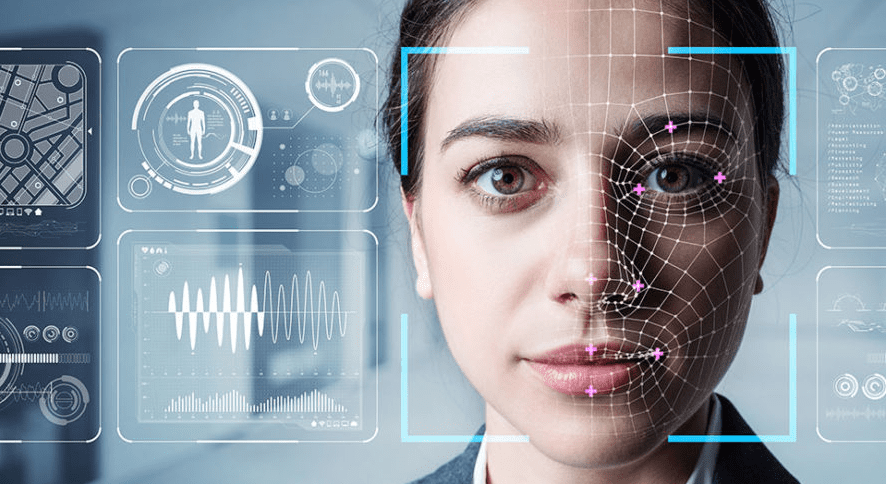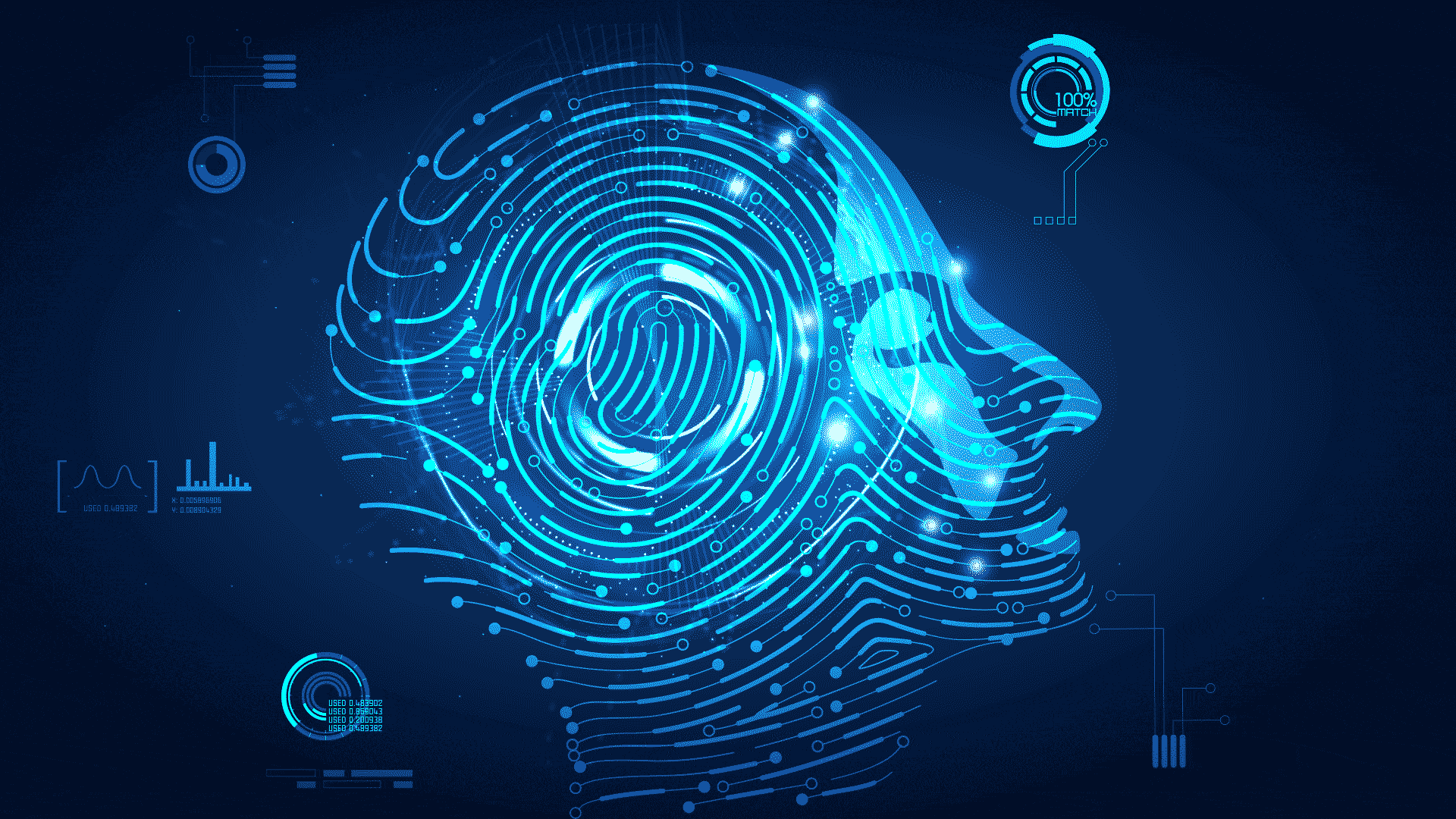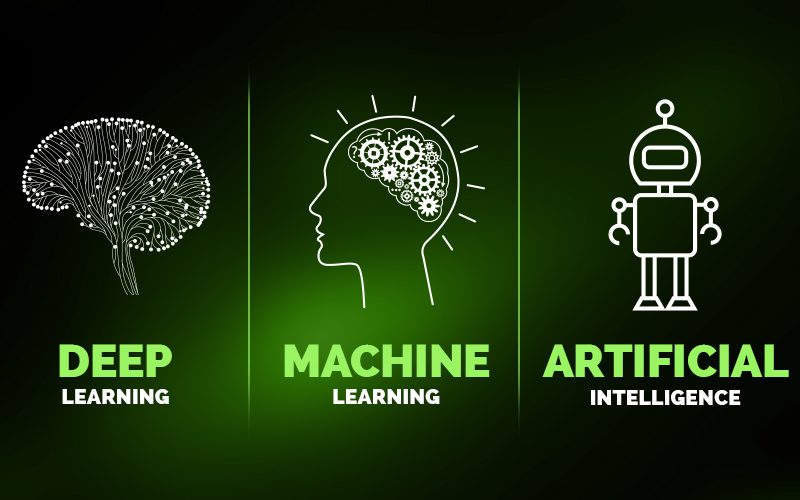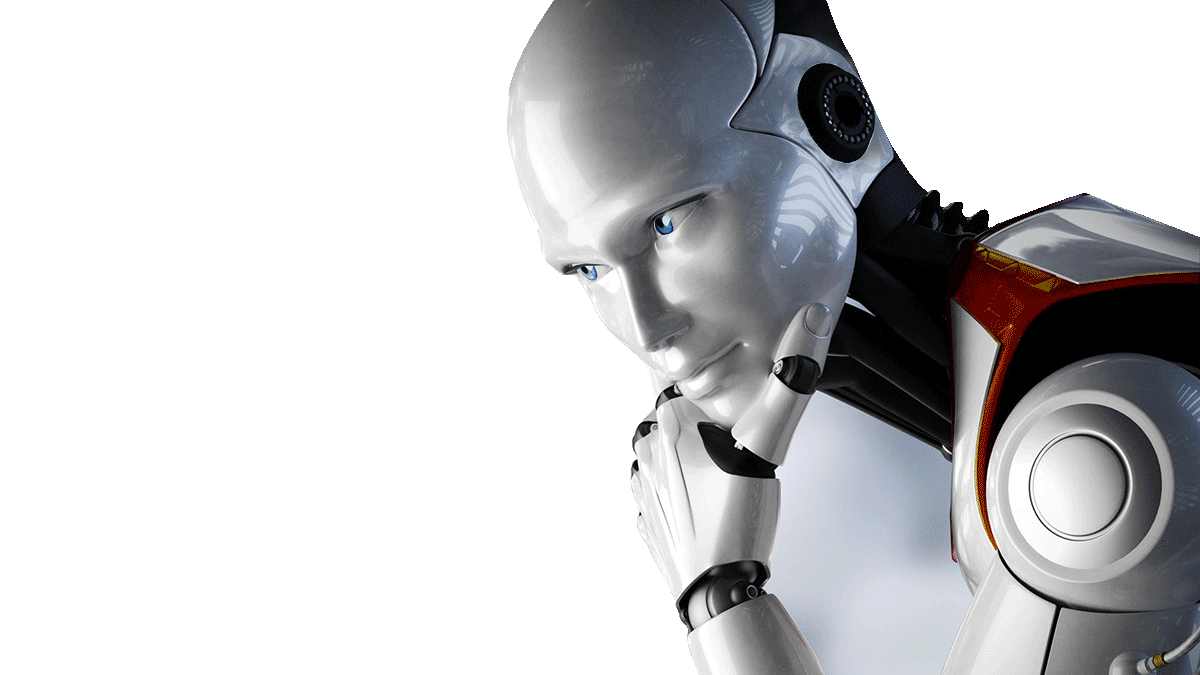AI IN REAL BUSINESS WORLD
Artificial Intelligence (AI) has swiftly become a driving force in the modern business landscape, transforming the way organizations operate and opening up new opportunities for growth and efficiency. In this article, we will explore the real-world applications of AI in businesses and the significant impact it has across various sectors.

- Data Analysis and Insights: AI excels at processing and analyzing large volumes of data, enabling businesses to gain valuable insights and make data-driven decisions. Through machine learning algorithms, AI can identify patterns, detect anomalies, and extract meaningful information from structured and unstructured data. This capability enhances decision-making processes, allows for predictive modeling, and facilitates a deeper understanding of customer preferences and market trends.
- Automation and Efficiency: AI-powered automation streamlines business processes and increases operational efficiency. Repetitive tasks that once required human intervention can now be automated using AI technologies such as robotic process automation (RPA). This allows employees to focus on more strategic and creative endeavors while reducing errors, minimizing costs, and improving productivity.
- Enhanced Customer Experiences: AI has revolutionized customer experiences by providing personalized interactions and timely assistance. Chatbots and virtual assistants powered by AI can engage with customers in real-time, addressing their queries, providing recommendations, and resolving issues promptly. Natural language processing and sentiment analysis enable these systems to understand and respond to customer needs effectively, improving overall satisfaction and loyalty.
- Predictive Analytics and Forecasting: AI algorithms have the ability to analyze historical data, identify patterns, and make accurate predictions. In industries such as finance and marketing, AI can forecast market trends, predict customer behavior, and optimize strategies accordingly. This foresight empowers businesses to make proactive decisions, seize opportunities, and mitigate risks, giving them a competitive advantage.
- Supply Chain Optimization: AI plays a vital role in optimizing supply chain management. By analyzing data from multiple sources, including sales, inventory, and external factors, AI algorithms can improve demand forecasting, optimize inventory levels, and enhance logistics and distribution processes. This enables businesses to reduce costs, minimize stockouts, and streamline operations.
- Fraud Detection and Security: AI has become an indispensable tool for combating fraud and enhancing security measures. Machine learning algorithms can analyze vast amounts of data to identify suspicious patterns and anomalies, flagging potential fraudulent activities in real-time. AI-powered security systems can detect unauthorized access attempts, protect sensitive information, and strengthen cybersecurity infrastructure.
- Product Development and Innovation: AI fosters innovation by leveraging data insights and accelerating product development cycles. AI algorithms can analyze customer feedback, market trends, and competitor insights to identify new product opportunities and improve existing offerings. By understanding customer preferences and predicting future needs, businesses can develop innovative products that align with market demands.

Artificial Intelligence AI Companies 24X7OFFSHORING
- AI >>
AI stands for Artificial Intelligence.
Artificial intelligence is the simulation of human intelligence processes by a computer system.
How to use AI in real business world.
Artificial Intelligence (AI) has become a transformative technology in various industries, revolutionizing the way businesses operate and make decisions. From automating tasks to extracting valuable insights from data, AI has the potential to drive efficiency, innovation, and competitive advantage. In this article, we will explore how businesses can effectively use AI in the real world to optimize operations, enhance customer experiences, and drive growth.
- Automating Repetitive Tasks: One of the primary applications of AI in the business world is automating repetitive tasks. AI-powered software can handle routine and mundane tasks, such as data entry, document processing, and customer support inquiries. By automating these tasks, businesses can free up valuable human resources, increase productivity, and reduce errors. This allows employees to focus on higher-value activities that require critical thinking and creativity.
- Enhancing Customer Experiences: AI enables businesses to deliver personalized and seamless customer experiences. Natural Language Processing (NLP) and Machine Learning algorithms can analyze customer data, such as past interactions, preferences, and behaviors, to provide tailored recommendations, product suggestions, and targeted marketing campaigns. Chatbots and virtual assistants powered by AI can also offer 24/7 customer support, answering queries, and resolving issues in real-time, enhancing customer satisfaction and loyalty.
- Predictive Analytics and Forecasting: AI algorithms can analyze vast amounts of data to identify patterns, trends, and insights that humans may not easily detect. This capability enables businesses to leverage predictive analytics and forecasting to make informed decisions. By analyzing historical data and external factors, AI can predict customer demand, optimize inventory management, and anticipate market trends. This helps businesses in strategic planning, resource allocation, and risk management.
- Fraud Detection and Security: AI plays a vital role in detecting and preventing fraudulent activities. Machine Learning algorithms can analyze vast volumes of data, identifying unusual patterns or anomalies that may indicate fraudulent behavior. By continuously learning from data and adapting to new patterns, AI-powered systems can enhance security measures, protect sensitive information, and minimize the risk of financial losses due to fraudulent activities.
- Intelligent Decision Support: AI can provide valuable decision support by analyzing complex data sets and generating insights. Businesses can leverage AI algorithms to process structured and unstructured data, such as customer feedback, market research, and social media sentiment analysis. These insights can help businesses identify market trends, understand customer preferences, and optimize decision-making processes. AI-powered recommendation systems can also assist businesses in making data-driven decisions related to product development, pricing, and marketing strategies.
- Process Optimization and Efficiency: AI can optimize business processes, improving efficiency and reducing costs. Machine Learning algorithms can analyze historical data and identify bottlenecks or areas for improvement in operational workflows. By automating and streamlining processes, businesses can reduce human errors, accelerate turnaround times, and enhance productivity. AI-powered optimization algorithms can also help with supply chain management, resource allocation, and logistics planning, optimizing resource utilization and minimizing waste.
- Continuous Learning and Adaptation: One of the key strengths of AI is its ability to continuously learn and adapt based on new data and experiences. By collecting and analyzing real-time data, AI systems can refine their models, algorithms, and predictions. This enables businesses to stay agile and responsive to changing market dynamics and customer needs. Continuous learning allows AI to evolve and improve over time, providing businesses with a competitive edge in a rapidly changing business landscape.
Artificial intelligence approaches and concept less than a decade.AI is the branch of computer science that aims answer turnings question affirmative. It is the endeavor to simulate human intelligence in machines.
When people think AI , they often think big such as curing cancer or solving climatic change everybody is dreaming up the biggest problem possible and attempting to solve them with AI. JUST 20% of surveyed executives use AI related technologies in their business.
With the right business case and the right data ,AI can deliver powerful time & cost savings as well as valuable insights you can use to improve your business.

How Organizations Use man-made intelligence Today
Man-made brainpower is now generally utilized in business applications, including robotization, information examination, and normal language handling. Across ventures, these three fields of simulated intelligence are smoothing out tasks and further developing efficiencies.
Mechanization mitigates dull or even risky assignments. Information investigation gives organizations bits of knowledge never before conceivable. Normal language handling takes into account wise web indexes, accommodating chatbots, and better openness for individuals who are outwardly debilitated.
Other normal purposes for man-made intelligence in business include:
Moving and cross-referring to information; refreshing documents
Buyer conduct determining and item proposals
Extortion identification
Customized promoting and advertising informing
Client care by means of phone or chatbots
For sure, numerous specialists note that the business utilizations of man-made intelligence have progressed so much that we live and work close by it consistently without acknowledging it.
In 2018, Harvard Business Survey anticipated that simulated intelligence stands to have the best effect in promoting administrations, store network the executives, and assembling.
Two years on, we are watching these expectations work out progressively. The quick development of man-made intelligence fueled online entertainment advertising, for example, makes it more straightforward than any time in recent memory for brands to customize the client experience, associate with their clients, and track the progress of their promoting endeavors.
Store network the executives is additionally ready to make significant man-made intelligence based progresses in the following quite a while. Progressively, process knowledge advancements will give organizations precise and extensive understanding to screen and further develop activities continuously.
On the patient side of the medical care business, we are probably going to see simulated intelligence assist with everything from early location and quick analyses. On the doctor side, computer based intelligence is probably going to assume a bigger part in smoothing out planning cycles and assisting with getting patient records.
Information straightforwardness and security is one more region where computer based intelligence is supposed to have a massive effect before long. As clients become mindful of exactly how much information organizations are gathering, the interest for more noteworthy straightforwardness into what information is gathered, the way things are utilized, and the way things are gotten will just develop.
Furthermore, as Esposito notes, there keeps on being critical chance to develop the utilization of man-made intelligence in money and banking, two areas with huge amounts of information and enormous potential for simulated intelligence based modernization, however which actually depend vigorously on outdated cycles.
For certain ventures, the far and wide rollout of simulated intelligence relies on moral contemplations to guarantee public wellbeing.
Each business problem asks for a specific method with artificial intelligence with easy and deep learning techniques headlining today’s news & commercial applications being powered by ever more complex models.
An organization may be tempted to try to solve their cases with state-of-the-art AI models.
However, whether you should use such complex method are likely to benefit more from simpler approaches depends on a variety of factor.
The expansive goal of artificial intelligence has given rise to many question and debate, so much so , that no singular definition of the field is universally accepted..
Is AI Really intelligent ?
- Artificial Intelligence (AI) has become a buzzword in today’s technological landscape, often associated with intelligent machines and human-like abilities. However, it is crucial to understand the nature of AI and its limitations to accurately assess its true intelligence. In this article, we will delve into the concept of AI, its capabilities, and whether it can genuinely be considered intelligent.Defining AI: AI refers to the development of computer systems capable of performing tasks that typically require human intelligence. These tasks include natural language processing, problem-solving, pattern recognition, and decision-making. AI systems are designed to learn from data, adapt to changing circumstances, and improve performance over time.Narrow AI vs. General AI: It is essential to differentiate between Narrow AI and General AI. Narrow AI, also known as weak AI, is designed to excel at specific tasks within a limited domain. For example, image recognition or speech-to-text conversion. On the other hand, General AI, often portrayed in science fiction, refers to AI systems that possess human-level intelligence across a broad range of tasks and can understand and learn from any situation like humans.AI’s Intelligence: AI systems exhibit a form of intelligence known as “artificial” or “machine intelligence.” While AI algorithms can process vast amounts of data and perform complex calculations at incredible speed, it is crucial to note that they do not possess consciousness, self-awareness, or the ability to reason like humans.Machine Learning and AI: Machine Learning (ML) is a subset of AI that focuses on training algorithms to learn from data and make predictions or decisions without being explicitly programmed. ML algorithms can identify patterns, recognize objects, and predict outcomes based on the data they have been trained on. However, their intelligence is limited to the information provided and the patterns they can discern from the data.
Limitations of AI: Despite its remarkable capabilities, AI has several limitations. AI systems lack common sense reasoning, contextual understanding, and the ability to interpret emotions, sarcasm, or subtle nuances in human communication. They heavily rely on the quality and quantity of training data and can be biased if the data is skewed or incomplete. Additionally, AI systems may struggle with unexpected scenarios that deviate from their training data, making them less adaptable than humans.
The Human-AI Collaboration: Rather than viewing AI as a replacement for human intelligence, it is more productive to see it as a tool that augments human capabilities. AI excels at processing large amounts of data, identifying patterns, and providing data-driven insights. Humans, on the other hand, bring creativity, critical thinking, ethical decision-making, and emotional intelligence to the table. By combining the strengths of both humans and AI, we can achieve more significant breakthroughs and address complex problems more effectively.
Even though the above-mentioned capabilities are mind-blowing and specially a hundred times better than humans. Human could perform on these task , not many people would call the algorithms actually intelligent.
- AI in Education !
AI in education is more than science fiction .one study found that 34hours on Duolingo’s app are equivalent to a full university semester of language education as with many other AI domains China has already leapt to the font of the pack in advancing AI -centered education.
REMARK: china is investing heavily in AI for education.
AI adoption in education will explode to reach global expenditure of $6B by 2025.much of the growth will come from China followed by U.S.A.
- Importance of AI
Ai is actually the need of the hour. Its important that all student should start giving these diagnostic test and understand their specific needs and learning style so that they can enjoy their journey.
This technology is important because it enables human capabilities, reasoning, planing, communication to undertaken by software increasingly effective. Intelligent machine help in daily life to help us improve our work it also helps in increasing efficiency which is one of the greatest advantage of artificial intelligence and improved workflows.it also helps in human error rates, deeper data analyzing and 24 hour availability. This has helped fuel an explosion in efficiency and opened to entirely new business opportunities for large enterprises. Prior to the current wave of artificial intelligence.
In today’s life, most successful and largest enterprises have used AI to improve their competitors.
How AI works in real business?
Artificial Intelligence (AI) has emerged as a transformative technology, revolutionizing the way businesses operate across various industries. With its ability to analyze vast amounts of data, identify patterns, and make intelligent decisions, AI has become an invaluable tool for organizations seeking to gain a competitive edge. In this article, we will explore how AI works in real business scenarios and the profound impact it has on enhancing productivity, efficiency, and decision-making.
- Data-driven Decision Making: One of the primary ways AI adds value to real business is by empowering data-driven decision making. AI algorithms can analyze large datasets to extract meaningful insights and patterns, enabling businesses to make informed decisions. For instance, in the finance industry, AI-powered algorithms can analyze market trends, historical data, and economic indicators to optimize investment strategies and predict market fluctuations with greater accuracy.
- Process Automation: AI excels at automating repetitive and mundane tasks, freeing up human resources to focus on more strategic and creative activities. Intelligent automation systems, such as robotic process automation (RPA), utilize AI algorithms to mimic human actions and perform tasks like data entry, document processing, and customer service inquiries. This automation not only improves efficiency but also reduces errors and operational costs.
- Customer Experience Enhancement: AI has revolutionized customer service by enabling businesses to provide personalized experiences at scale. AI-powered chatbots and virtual assistants can handle customer queries promptly and efficiently, offering round-the-clock support. Natural language processing allows these systems to understand and respond to customer requests accurately, delivering a seamless and personalized customer experience.
- Predictive Analytics: AI’s predictive capabilities have transformed how businesses forecast trends and anticipate future outcomes. By analyzing historical data, AI algorithms can predict customer behavior, market trends, and demand patterns. This empowers businesses to optimize inventory management, predict maintenance needs, and develop targeted marketing strategies to increase customer engagement and revenue.
- Fraud Detection and Security: In the era of increasing cyber threats, AI plays a crucial role in detecting and preventing fraudulent activities. Machine learning algorithms can analyze vast amounts of data, identify anomalous patterns, and flag potential fraud incidents. AI-powered security systems can detect unauthorized access attempts, prevent data breaches, and safeguard critical business information, providing businesses with robust security measures.
- Product Development and Innovation: AI fosters innovation by providing businesses with valuable insights into consumer preferences, market trends, and emerging technologies. AI-powered algorithms can analyze customer feedback, social media interactions, and market data to identify new product opportunities and areas for improvement. This enables businesses to stay ahead of the competition by developing innovative solutions that cater to evolving customer needs.
AI requires a foundation to specialize hardware and software for writing and training machine algorit6hm, and no one programming is synonymous with the AI.in general AI work by large ingesting labelled training data, analyzing data. These patterns make prediction about the future states.in this way a chatbot that is fed an example of text chat.
A guide to the AI in the enterprise which also include 4 main types of AI explained and 7 key benefit of AI business and even the criteria for success in AI.
Reactive AI, limited memory machines, theory of mind and the fourth one self-aware AI
This is the information about AI in business world.Get all your business need here only | Top Offshoring Service provider. (24x7offshoring.com)

